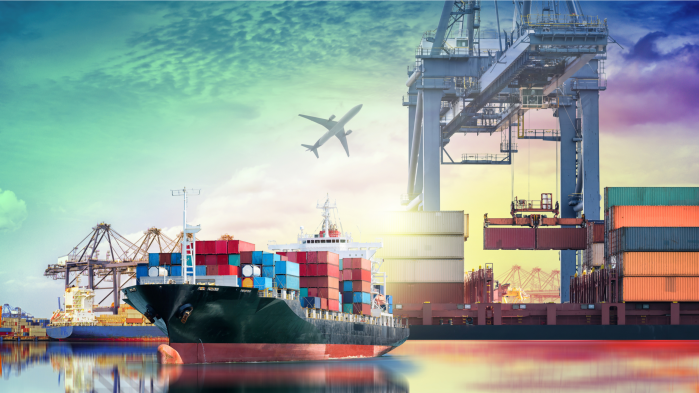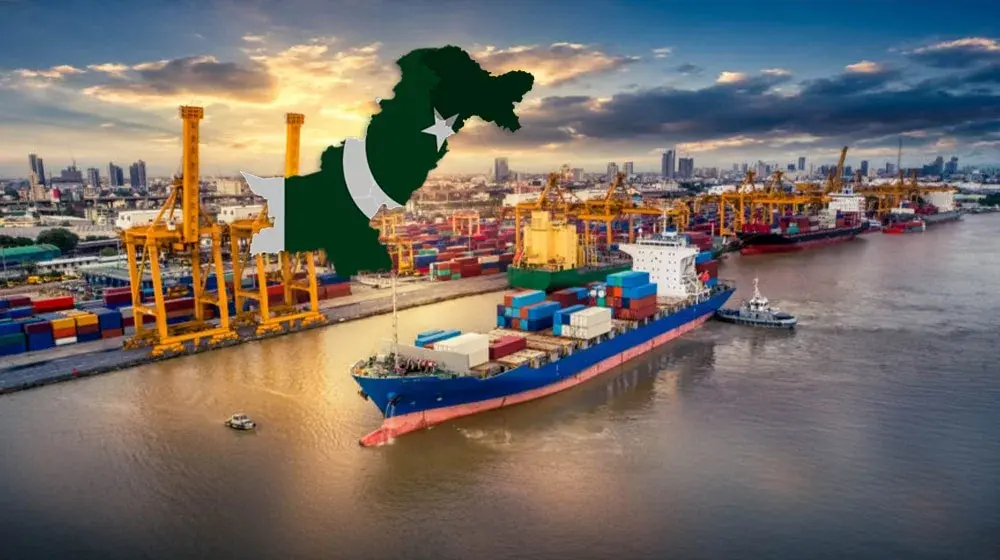Increasing exports is vital and crucial for the economic growth,stability and development of Pakistan.With its strategic location and abundant resources Pakistan possesses the potential to become a major exporter in the global market. However, realizing this potential requires a comprehensive approach that addresses the challenges and leverages the opportunities inherent in the country’s export landscape. Let’s take a look at how Pakistan can increase its exports and achieve economic growth. There are several key strategies that can be implemented to boost exports and improve the country’s trade balance.
Regulatory Reforms and Trade Facilitation:
Pakistan needs to get rid of the complex regulatory environment to enhance its export performance. Simplifying customs procedures, reducing bureaucratic red tape, and ensuring consistent enforcement of regulations, implementing digital solutions for customs clearance and documentation can enhance efficiency and transparency and can significantly reduce the time and cost involved in exporting.
Infrastructure Development:
Investment in infrastructure development is crucial for boosting exports. Upgradation of transportation networks, including roads, railways, and ports, can reduce transportation costs and improve the timely delivery of goods. Developing modern logistics and warehousing facilities can streamline export operations and enhance efficiency.
Energy crisis and rising cost of electricity has hurt Pakistani exports a lot. So Investing in energy infrastructure is also critical. Ensuring reliable and affordable electricity supply is essential for the smooth functioning of export-oriented industries.
Diversification of Exports:
Pakistan’s exports are heavily concentrated in a few markets.For exports Pakistan must stop relying on a few sectors, such as textiles,sports goods, surgical instruments and clothing. Instead Pakistan must Diversify exports into new sectors. Promising sectors for diversification include pharmaceuticals, food and beverages, information technology, engineering goods, agricultural products, and value-added textiles. Pakistan can focus on diversifying its export products. By expanding the range of goods and services that are exported, the country can tap into new markets and increase its competitiveness globally. This can be achieved through investing in research and development, improving infrastructure, and providing support to industries that have high export potential.
African markets must also be focused based on its growing population, expanding middle class, untapped market potential, resource richness, and improving infrastructure.
By expanding into new markets, the country can reduce its reliance on a few key products and markets. This will increase export volumes and will also help to mitigate risks associated with fluctuations in demand.

Role of Trade & Investment Counsellor and Attaches
Trade & Investment Counsellor and Attaches of Pakistan’s embassies and foreign missions abroad can play a crucial role in increasing exports by acting as a bridge between domestic businesses and international markets. Some of the key roles of Embassies and foreign missions are to perform Market Intelligence and Research, Business Matchmaking and Networking, Trade Promotion and Advocacy, Regulatory and Legal Support, Image Building and Public Diplomacy, Hosting trade fairs and exhibitions to showcase the products from Pakistan.
The detailed info about Embassies and foreign missions can be checked from the official website of the Ministry of Commerce of Pakistan.
https://www.commerce.gov.pk/mission-abroad/pakistans-trade-missions-abroad/
Enhancing Competitiveness:
Pakistani businesses need to enhance their competitiveness. This involves investing in research and development to create innovative products, adopting modern technologies to improve productivity, and ensuring strict adherence to international quality standards.
The government can play a crucial role in promoting competitiveness by providing incentives for research and development, supporting the adoption of new technologies, and facilitating access to affordable credit for exporters.
Skill Development and Capacity Building:
To produce high-quality export products a skilled workforce is needed . If Pakistan wants to enhance the productivity and competitiveness of the workers in export-oriented industries then they must invest in training and skill development programs. Additionally, providing training in areas such as marketing, finance, and international trade can help businesses navigate the complexities of exporting.
By providing training and education to workers in export-oriented industries, Pakistan can also improve the quality and competitiveness of its export products.

Branding and Marketing:
Pakistan is lagging far behind with regard to Building a strong brand identity and promoting Pakistani products effectively in international markets. This involves creating compelling marketing campaigns that highlight the unique features and benefits of Pakistani products, participating in international trade shows and exhibitions, and utilizing digital marketing channels to reach a global audience.
Improving the quality and competitiveness of Pakistani products is essential. Investing in technology, innovation, and infrastructure will help to enhance the value proposition of Pakistani exports, making them more attractive to international buyers.
Promoting Investment and Ease of Doing Business:
Attracting foreign direct investment (FDI) can significantly boost export capabilities. The government should focus on creating a conducive business environment by streamlining investment procedures, Simplifying regulations, reducing bureaucratic hurdles, ensuring policy stability and providing incentives for exporters will help to support the growth of the export sector. Furthermore, fostering a business-friendly environment in Pakistan is crucial. Furthermore, fostering a business-friendly environment in Pakistan is crucial. Simplifying regulations, reducing bureaucratic hurdles, and providing incentives for exporters will help to support the growth of the export sector.
Collaboration and Partnerships:
The government and the private sector need to work together to create a supportive export ecosystem. This involves fostering collaboration between businesses, industry associations, and government agencies to address common challenges, share information, and develop joint strategies for export promotion. Even the higher education institutions should collaborate with the industry to increase exports by providing a range of resources, expertise which are aligned with industry needs.

Enhancing trade relations:
Enhancing trade relations with other countries is key to increasing exports. Pakistan can negotiate trade agreements and partnerships with other nations to facilitate easier access to foreign markets. By reducing trade barriers and tariffs, the country can attract more foreign buyers and increase its exports. In addition, forging strong trade agreements with other countries can also help to boost exports. By opening up new markets and reducing trade barriers, Pakistan can increase its access to global markets and attract more foreign investment. Pakistan must pursue bilateral and multilateral trade agreements with key export markets. These agreements can reduce tariffs and non-tariff barriers, opening up new opportunities for Pakistani businesses to access global markets.
The symbiotic relationship of employees and organizations to achieve export goals:
The capabilities of employees and organizations should be in a symbiotic relationship. And these should be aligned to increase exports where they empower and enhance each other. This dynamic is crucial for growth and sustainable success of export business. By aligning employee and organizational capabilities the virtuous cycle of growth, innovation, and success can be created. In any organization where this relationship is disturbed then the goal of export growth can not be achieved.
Conclusion
To increase Pakistan’s exports is a complex but achievable goal. Increasing exports is a key priority for Pakistan’s economic development but it requires a multi-faceted approach that involves diversifying export products, fostering trade relations with other countries, and investing in the development of export industries.Pakistan must implement a comprehensive approach that addresses regulatory, infrastructural, and capacity-related challenges while leveraging the country’s unique strengths and opportunities, This way Pakistan can revitalize its export sector and achieve sustainable economic growth. Exports not only generate foreign exchange earnings but also create jobs, stimulate industrial development, and enhance Pakistan’s standing in the global marketplace. It is a journey that requires collective effort, innovation, and a commitment to quality and excellence. With the right strategies Pakistan can unlock its full export potential and pave the way for a more prosperous future. In order to increase exports of Pakistan, it is essential to focus on competitive pricing, product quality, and diversification of export markets. Implementing policies that support the development and promotion of high-quality products will attract more international buyers. Additionally, investing in infrastructure and technology can help streamline production processes and improve overall efficiency. Developing trade relations with emerging markets and offering incentives to exporters can also play a crucial role in boosting export growth. By strategically addressing these key areas, Pakistan can expand its market presence on a global scale and can enhance its export competitiveness. By implementing these strategies, the country can significantly enhance its export performance and drive long-term economic growth.







![Ta11672 ssy to Auto Connect: A Comprehensive Tutorial [2024]](https://dgpedia.com/wp-content/uploads/2024/09/ta11672-ssy-to-auto-connect.jpg)
